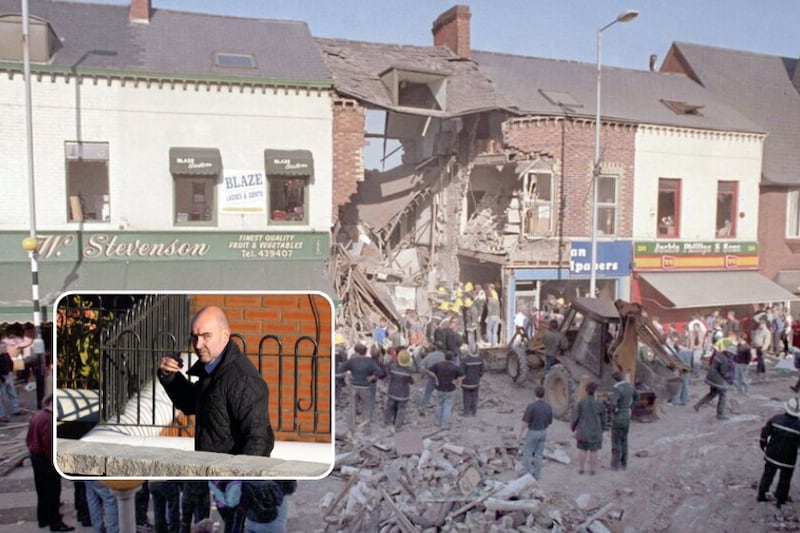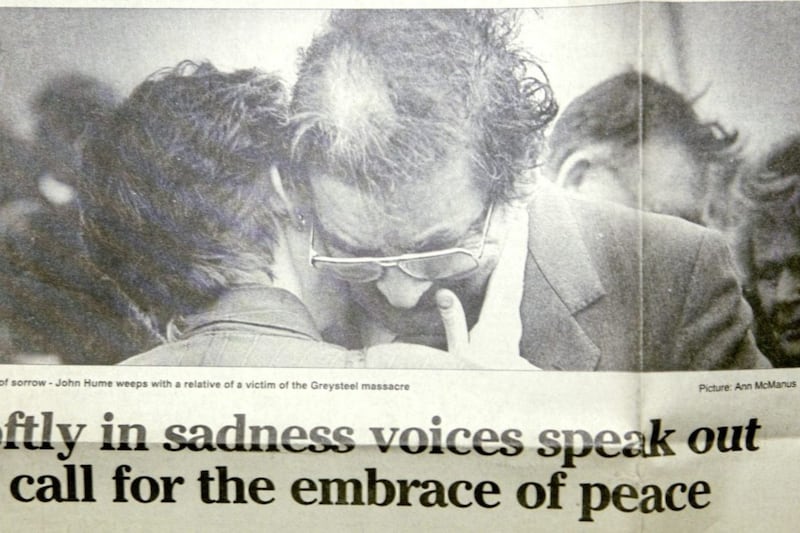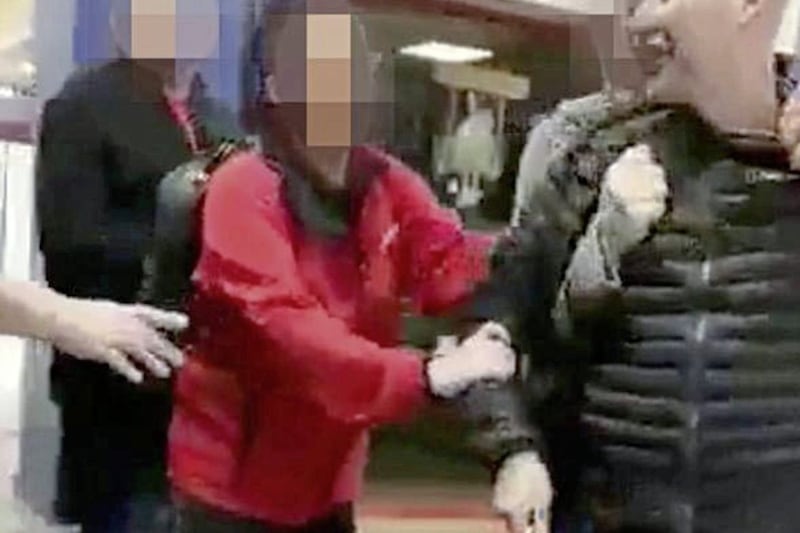ONE of the first people on the scene of the Shankill bomb has launched a High Court action against the PSNI over allegations that a high level informer was involved in the atrocity.
Geordie Brown (57) said he was taking legal action against the PSNI after suffering 26 years of what he claims was avoidable trauma.
Mr Brown was one of the first people on the scene of the IRA atrocity on the loyalist Shankill Road in October 1993.
As a result has suffered with severe Post Traumatic Stress Disorder, that has disrupted every aspect of his life for the last 26 years.
The father-of-two was so traumatised after the atrocity he felt unable to continue living on the Shankill Road where he grew up and moved to Bangor, Co Down.
In January 2016 the Irish News revealed a high level informer had been 'commander' of the IRA unit responsible for the Shankill bomb atrocity.
Known as 'Agent AA', the man, who is well-known in the Ardoyne area of north Belfast, was said to have been the last person to have handled the bomb before it was handed to IRA men Sean Kelly and Thomas Begley to be transported to Frizzell's fish shop.
Nine civilians, including two children died when the bomb exploded prematurely. Bomber Thomas Begley also died instantly when the bomb exploded in the packed shop.
The senior ranking IRA man was 'stood down' by the organisation's ruling army council in 2002 after they discovered he had been working as a double agent for almost a decade.
However, the Irish News understands that no explanation was given to the rank and file members as the leadership attempted to keep the information under wraps.
After the Irish News revealed his covert role the man later, through a solicitor, denied the allegations.
While some of the Shankill families were angry at the revelations and refused to believe the existence of an informer, several others made complaints to the Police Ombudsman asking the watchdog to investigate just what police knew in advance of the atrocity.
A man, who was abducted and tortured by the IRA commander and Special Branch informer codenamed 'AA', also asked the Police Ombudsman to investigate if there was collusion in his kidnapping which took place in 2000.
As a result of the revelations Mr Brown said he felt compelled to take a case which, if successful, could also pave the way for dozens more cases where state informers are alleged to have been involved in paramilitary attacks which resulted in trauma and injury.
Mr Brown, has suffered with panic attacks, constant anxiety and flash backs of the horrific scenes he witnessed as he dug for survivors in the rubble.
Through his solicitor Kevin Winters of KRW Law, he has lodged a High Court case against the Chief Constable for the trauma suffered as a result of his experiences.
Mr Winters said: "Over a quarter of a century ago the term 'state collusion' was synonymous with loyalist/security services infiltration and was dismissed by many as simply republican propaganda.
"Equally rejected as fanciful was the suggestion the state may have "colluded" with PIRA on intelligence issues which directly or indirectly resulted in death.
"Today those assessments are seen as totally outdated.
"The consistent political failure to deliver an independent mechanism to investigate conflict-related killings has led to a huge upswing in legacy litigation resulting in greater official and judicial engagement on the past.
"This is the context within which Mr Brown brings his High Court action for misfeasance, negligence and breach of the European Convention against the state," he said.
"Last month we sent pre-action notice of proceedings to the PSNI alleging 'collusion' in RUC Special Branch handling of intelligence.
"We are also in the middle of an ongoing engagement with the Police Ombudsman's Office on his complaint.
"This hasn’t been an easy step for him to take and I commend him in stepping forward to highlight his plight. His case is uncomfortable because it adds to the burgeoning list of incidents that serve to mess up hitherto settled narratives on the past."







